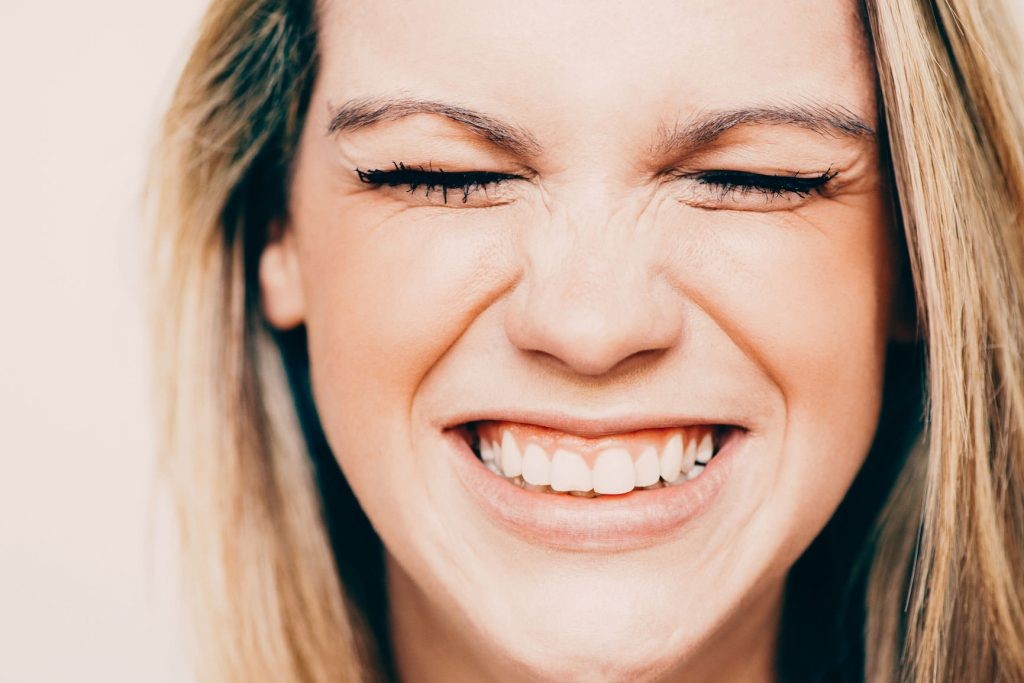
Do you ever wake up in the morning with a headache, jaw pain, or an earache? If you do, chances are you grind your teethwhile you sleep. This involuntary or habitual grinding of the teeth is called bruxism and can be very harmful. It can wear down your teeth to stumps if ignored long enough. It can also break teeth, implants, crowns, bridges, etc., and can cause recurring headaches. Eventually dentures could be your only option. Before you know how to stop the nocturnal tooth grinding, it is important to know what the cause is.
There are several reasons why people grind their teeth at night, and depending on the cause, there are many solutions:
Stress and Anxiety
The most common answer to the question of nocturnal tooth grinding is stress and anxiety. According to the Bruxism Association, “70% of bruxism occurs as a result of stress or anxiety.” Developing a good outlet for stress can significantly impact your susceptibility to nocturnal tooth grinding. Avoiding sugary, caffeinated foods and drinks before bedtime can reduce anxiety. Avoiding alcohol is also important, as it tends to increase sleep bruxism.
Missing or Crooked Teeth
An abnormal bite and missing or crooked teeth can be another cause of nocturnal tooth grinding. A custom mouth guard can help fight irritation in this case. Correcting crooked teeth and replacing missing teeth can also provide relief.
Sleep Disorders
Bruxism is more commonly found in individuals who have sleeping disorders like snoring, sleep talking, sleep paralysis, and sleep apnea. Managing sleep apnea under a doctor’s care often alleviates bruxism. A custom mouth guard can also provide relief to those with other kinds of sleeping disorders.
Medication
Certain medications such as antidepressants and amphetamines have been linked to bruxism. If this is the case, and discontinuation of the medication is unfeasible, a mouth guard is the best way to ensure the integrity of your teeth.
If you are experiencing symptoms of bruxism, it may be time to talk to a local dentist. Contact Fisher Pointe Dental at (313) 882-1490.
